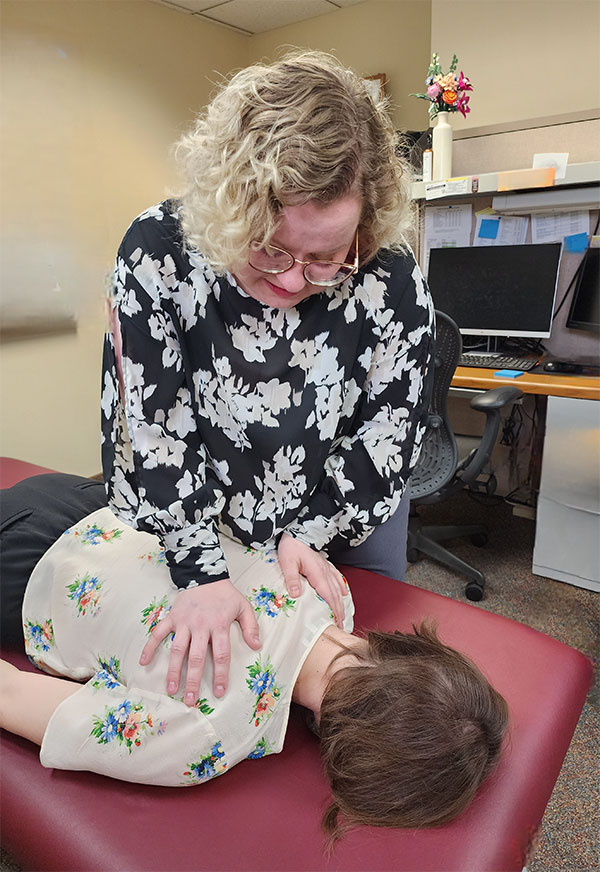 The Madison residency program holds Osteopathic Recognition, integrating osteopathic principles and Osteopathic Manipulative Treatment (OMT) into clinical practice. We offer dedicated OMT clinic days for our DO residents, along with monthly meetings of the Madison Osteopathic Study Group. This group, part of the Wisconsin Osteopathic Research and Discussion (WORD) initiative, brings together faculty and residents from family medicine programs across Wisconsin, as well as community faculty, fellows, and pediatric residents and faculty.
The Madison residency program holds Osteopathic Recognition, integrating osteopathic principles and Osteopathic Manipulative Treatment (OMT) into clinical practice. We offer dedicated OMT clinic days for our DO residents, along with monthly meetings of the Madison Osteopathic Study Group. This group, part of the Wisconsin Osteopathic Research and Discussion (WORD) initiative, brings together faculty and residents from family medicine programs across Wisconsin, as well as community faculty, fellows, and pediatric residents and faculty.
Our program also features OMT4MD, a resident-led initiative open to all allopathic residents interested in learning OMT. Osteopathic principles are woven into our regular didactics for both PGY-1s and PGY-2/3s, creating additional opportunities for DOs and MDs alike to enhance their clinical practice. We are further expanding our outreach by providing OMT services at local sporting events and clinics that serve individuals experiencing homelessness.
What Osteopathic Recognition Means
Osteopathic Recognition, awarded by the ACGME, highlights programs that formally incorporate osteopathic philosophy and practices into their training. This designation ensures that we:
- Integrate osteopathic philosophy: Emphasizing a holistic approach to care, recognizing the connection between the body’s structure and function and its natural ability to heal.
- Offer specialized training in OMT: Providing residents with comprehensive, hands-on experience to diagnose, treat, and prevent illness or injury.
- Enhance education and skills: Teaching residents how to apply osteopathic principles in everyday clinical practice, strengthening their diagnostic and therapeutic capabilities.
- Promote osteopathic practice: Encouraging the use of osteopathic techniques as part of routine family medicine care.
- Support DO and MD residents: Ensuring DO residents fulfill osteopathic training requirements while welcoming MD residents to participate and grow in this skill set, fostering a collaborative, inclusive learning environment.
By maintaining Osteopathic Recognition, our program underscores its commitment to preparing physicians who deliver comprehensive, patient-centered care using both osteopathic and allopathic approaches.
